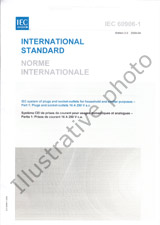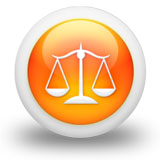We need your consent to use the individual data so that you can see information about your interests, among other things. Click "OK" to give your consent.

IEC/TS 62332-1-ed.2.0
Electrical insulation systems (EIS) - Thermal evaluation of combined liquid and solid components - Part 1: General requirements
STANDARD published on 14.3.2011
The information about the standard:
Designation standards: IEC/TS 62332-1-ed.2.0
Publication date standards: 14.3.2011
SKU: NS-408149
The number of pages: 20
Approximate weight : 60 g (0.13 lbs)
Country: International technical standard
Category: Technical standards IEC
The category - similar standards:
Annotation of standard text IEC/TS 62332-1-ed.2.0 :
IEC/TS 62332-1:2011(E) is applicable to EIS containing solid and liquid components where the thermal stress is the dominant ageing factor, without restriction to voltage class. This part specifies a dual-temperature test procedure for the thermal evaluation and qualification of electrical insulation systems (EIS). The following significant technical changes with respect to the previous edition have been made - Modifications have been made based on an extensive test series conducted using this methodology given in the first edition. This included updating expected times and tempertatures to use in order to obtain useful results, as well as making the range of equipment covered broader. The method can now cover electrotechnical devices using different sealing systems, as well as devices using enamel covered wires.
We recommend:
Updating of laws
Do you want to be sure about the validity of used regulations?
We offer you a solution so that you could use valid and updated legislative regulations.
Would you like to get more information? Look at this page.



 Cookies
Cookies
